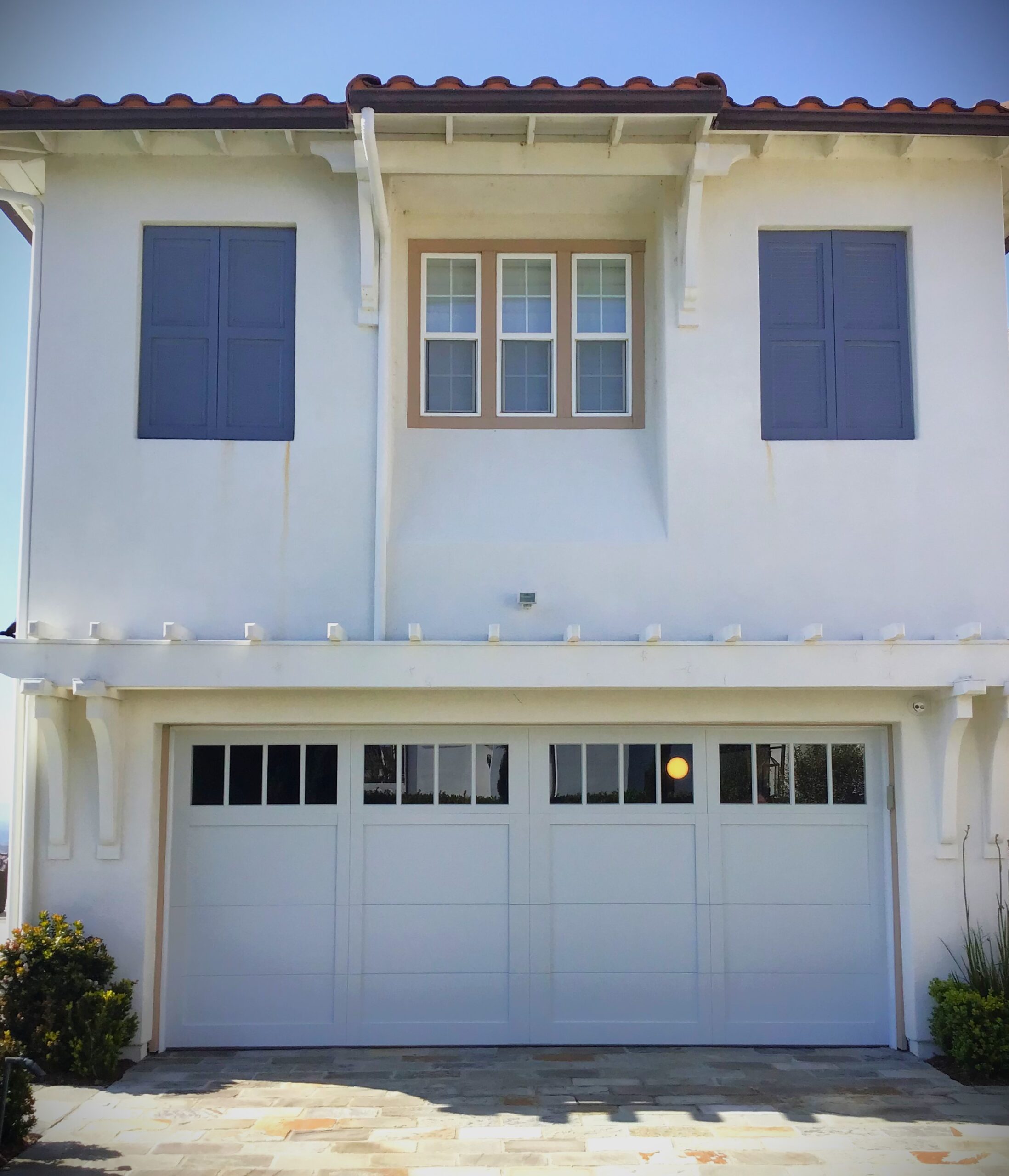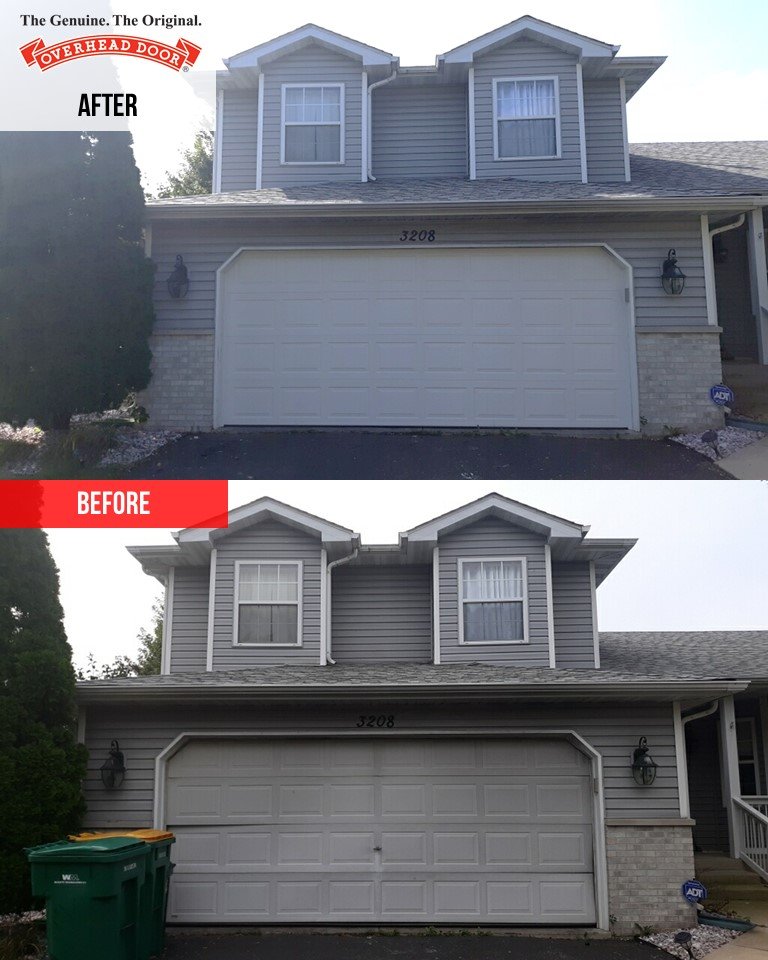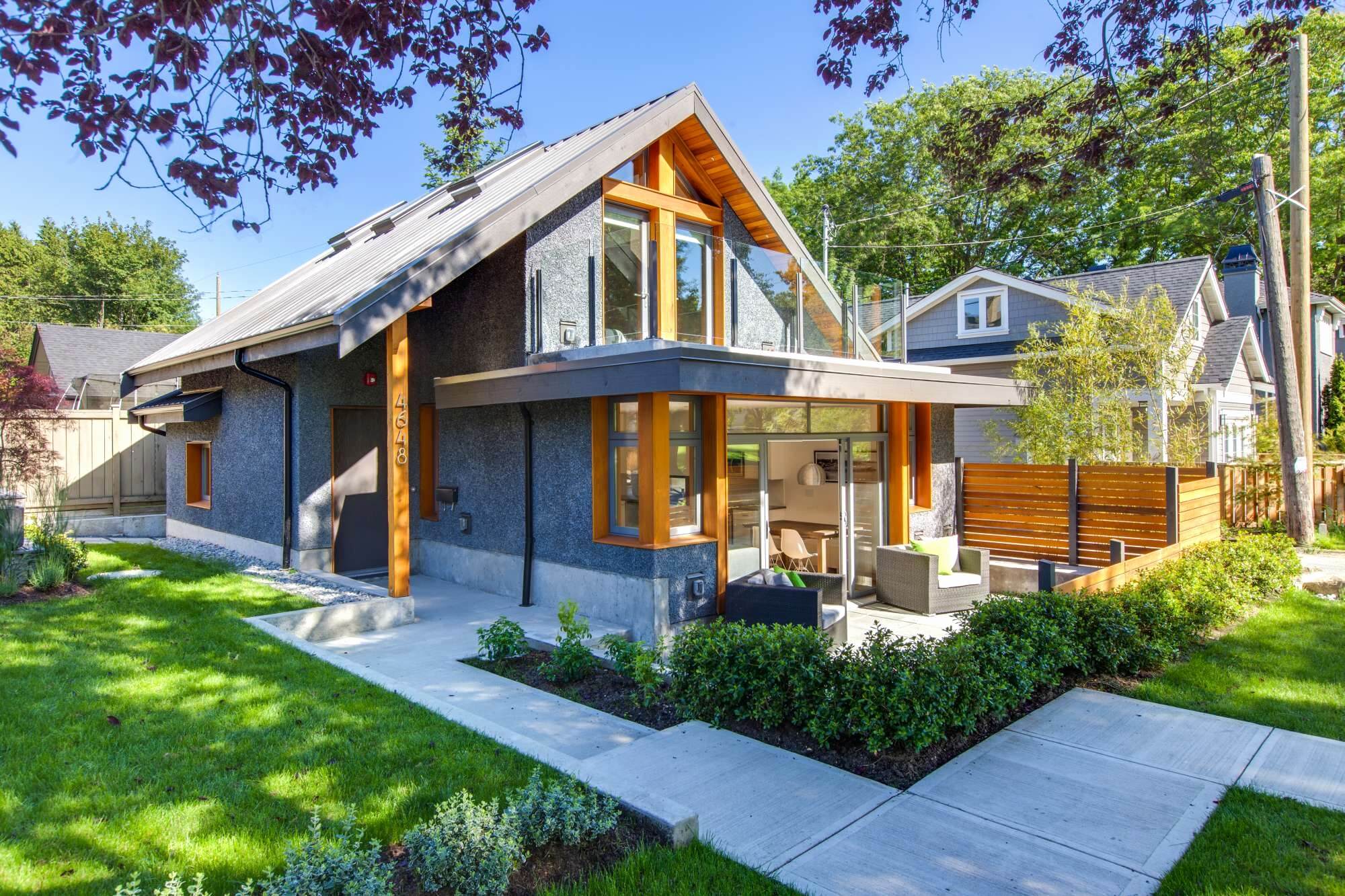What to Look for in Custom Garage Doors
Customization lets homeowners match their garage door to their home’s unique style while optimizing performance. Here’s what matters most:
Design Flexibility
Vertical, horizontal, or recessed panels suit everything from modern farmhouses to traditional homes. Cross-buck trim or arched designs add character without breaking the bank¹. Windows with decorative glass balance natural light and privacy—ideal for those wanting a sophisticated touch without sacrificing security².

Material Choices
Steel remains the most budget-friendly option ($650–$3,300 installed), offering durability and weather resistance³. Wood doors ($1,000–$4,000+) provide timeless elegance but require yearly staining to prevent warping⁴. For coastal areas, aluminum’s rust-proof build ($1,500–$2,000) justifies the higher cost⁵.
Security Upgrades
Reinforced steel cores and tamper-resistant locks are essential. Brands like Clopay integrate smart tech for remote monitoring, letting homeowners check doors via smartphone⁶.
Energy Efficiency
Triple-layer doors with polyurethane foam insulation (R-values up to 20.4) outperform single-pane models by reducing heat loss. For example, a Wisconsin homeowner cut heating bills by 18% using Clopay’s R-20.4 doors⁷. Attached garages benefit most, as proper insulation can lower HVAC costs by 20%⁸.

Top Materials Compared
| Material | Cost Range | Pros | Cons | Best For |
|---|---|---|---|---|
| Steel | $650–$3,300 | Budget-friendly, low upkeep | Dents easily | Cost-conscious buyers |
| Aluminum | $1,500–$2,000 | Rustproof, lightweight | Less insulation | Coastal homes |
| Fiberglass | $1,200–$2,200 | Resists dents, insulated | Brittle in cold | Moderate climates |
| Wood | $1,000–$4,000+ | Classic look, customizable | High maintenance | Luxury properties |
Why Insulation Matters
Polyurethane-insulated doors dominate for their foam-sealed cores, which block drafts and reduce noise. Clopay’s Canyon Ridge line (R-20.4) outperforms standard polystyrene models (R-6.5) by trapping 3x more heat⁹. Pro Tip: Poor installation ruins insulation benefits. Hire IDEA-certified pros who verify measurements and seal edges properly¹⁰.
2022’s Standout Brands
Arm-R-Lite
Specializes in sleek glass designs with insulated panels and 20-year warranties—perfect for modern homes¹¹.
Clopay
Offers carriage-house styles with R-19.4 insulation, ideal for historic homes needing custom sizing¹².
Wayne Dalton
Delivers quiet, suburban-friendly doors with noise-reducing tech at mid-range prices¹³.
Northwest Door
Crafts durable wood/steel hybrids with customizable finishes for harsh climates¹⁴.
Budgeting Smartly
- Custom doors cost $2,500–$10,000, covering unique sizes, finishes, and insulation¹⁵.
- Prefab steel doors start at $400, with installation adding $150–$700¹⁶. Cost-Saver: Add aftermarket insulation kits ($200–$500) to steel doors, but check warranties first—DIY errors can void coverage¹⁷.
Avoiding Installation Risks
DIY jobs often lead to misaligned tracks or dangerous spring tension (30,000+ annual injuries¹⁸). Certified installers prevent these issues by:
- Ensuring precise track alignment
- Safely handling high-tension springs
- Providing post-install maintenance tips
Warranties Matter
Brands like Garaga offer lifetime rust coverage, while Precision Garage Door includes unlimited labor warranties¹⁹. Prioritize companies with 24/7 support, like Clopay, for quick fixes.
Key Takeaways
- Balance priorities: Rank style, budget, and insulation needs.
- Compare R-values: Higher numbers mean better heat retention.
- Read reviews: 78% of buyers trust customer ratings when choosing installers²⁰.
 Since garage doors cover 30% of your home’s façade²¹, the right choice boosts curb appeal and resale value. With these insights, you’re ready to invest in a door that works as hard as you do.
Since garage doors cover 30% of your home’s façade²¹, the right choice boosts curb appeal and resale value. With these insights, you’re ready to invest in a door that works as hard as you do.
